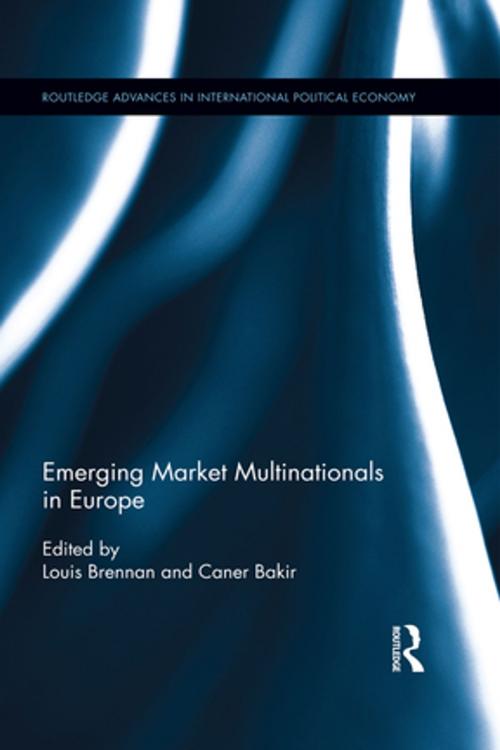| Author: | ISBN: | 9781317417675 | |
| Publisher: | Taylor and Francis | Publication: | June 17, 2016 |
| Imprint: | Routledge | Language: | English |
| Author: | |
| ISBN: | 9781317417675 |
| Publisher: | Taylor and Francis |
| Publication: | June 17, 2016 |
| Imprint: | Routledge |
| Language: | English |
This book makes a timely and highly stimulating contribution to the discourse on emerging-market multinationals, (EMNCs), as Foreign Direct Investment (FDI) in Europe from emerging countries (especially from the BRICs - Brazil, Russia, India, China) continues to grow in significance. Unsurprisingly, the emergence of EMNCs from emerging economies raises a wide range of challenges and opportunities for scholars, business professionals, and policymakers alike.
While explaining the sudden rise of these companies has become a major concern among scholars, we have very limited knowledge on drivers, motivations, strategies, and impact of these EMNCs in Europe and their policy implications. This volume provides fresh insights into EMNCs activities and their impact in Europe. The contributors argue that EMNCs combine various country specific advantages, existing firm-specific advantages (exploitation), and/or new FSAs (exploration) in their FDI, and that there is considerable heterogeneity across EMNCs, even those from the same southern economy.
Highlighting the importance of considering this divergent behaviour when implementing future European FDI policies, this book will be of interest to students and scholars of European Politics, International Political Economy, International Business and European Integration.
This book makes a timely and highly stimulating contribution to the discourse on emerging-market multinationals, (EMNCs), as Foreign Direct Investment (FDI) in Europe from emerging countries (especially from the BRICs - Brazil, Russia, India, China) continues to grow in significance. Unsurprisingly, the emergence of EMNCs from emerging economies raises a wide range of challenges and opportunities for scholars, business professionals, and policymakers alike.
While explaining the sudden rise of these companies has become a major concern among scholars, we have very limited knowledge on drivers, motivations, strategies, and impact of these EMNCs in Europe and their policy implications. This volume provides fresh insights into EMNCs activities and their impact in Europe. The contributors argue that EMNCs combine various country specific advantages, existing firm-specific advantages (exploitation), and/or new FSAs (exploration) in their FDI, and that there is considerable heterogeneity across EMNCs, even those from the same southern economy.
Highlighting the importance of considering this divergent behaviour when implementing future European FDI policies, this book will be of interest to students and scholars of European Politics, International Political Economy, International Business and European Integration.















